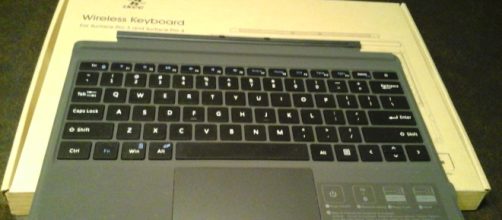Consider the extreme competition and therefore pressure that an enterprise like the Deer Park, New York-based computer wire and cable retailer Cables.com could be under.
They and other online wire and cable sellers like Redmond, Washington-based iXCC are being challenged to meet their sales goals in what the May 7, 2017, issue of Bloom Business Week described as a US economy mired in an anemic pattern of two percent annual growth.
Mobile devices still must pay their dues wired into charging stand
Since they are designed merely as accessories for them, the computer wire and cable category will always play a bride's maid to the sexier big-ticket items such as iPhones, iPads and the latest Dell notebook.
With all of the changes and upheavals going on in the networking field like cloud computing and the Internet of Things it has to be comforting for IT pros that through it all their cabling --as exemplified in online merchant Cables.com-- though by no means antiquated, at least maintains a reassuring familiarity. A new connector like HDMI here or a fiber optic there is likely the worst disruption they are going to encounter.
Furthermore, with the ongoing improvements in the form of Wi-Fi and Bluetooth technologies consumers are freer than ever from their wires and cables.
'Grand Illusion' of the 'wireless' mobile device
Is it all still just as the seventies rock group Styx maintained, a "Grand Illusion?" After all, at the end of the day, an iPhone or a Samsung Galaxy Phone user alike will have to take their wireless phones and connect them to a battery charger of some form.
That is most often accomplished with an AC adapter cable.
Some progressive mobile phone users will exchange any data that they need from their smart phones into their home computer using wireless means such as Blue Tooth or Wi-Fi. Other iPhone or Android smart phone consumers still are using the humble cable to do everything from charging their phone's battery to exchanging their latest pics and data with a PC or notebook computer.
Apple continues to be difficult
Rather than subscribing to the Universal Serial Bus and making it truly universal, they instead opt to create an entirely new cable connector. Called the "Lightning Cable," they could have easily have done with a USB and made life easier for consumers.
But no, just like their headphone jack that is almost the standard size but isn't.
So forget using your Android device charger on an iPhone. It is designed especially to not do that. It is what they so glibly call in the electronics industry as "proprietary," meaning exclusive to the Apple ecosystem; more cute phraseology there. At least they are not being quite as prissy as they were in the past and are allowing certified non-Apple owned companies to make cables for them.
Of course, Apple is not totally incompatible with all computing standards. A lot of Apple products support Blue Tooth. So you should be able to use an accessory like iXCC's nifty Surface Pro keyboard on an iPad because of its adherence to the popular wireless protocol. Their versions of Lightning Cables are bestsellers over at Amazon.

